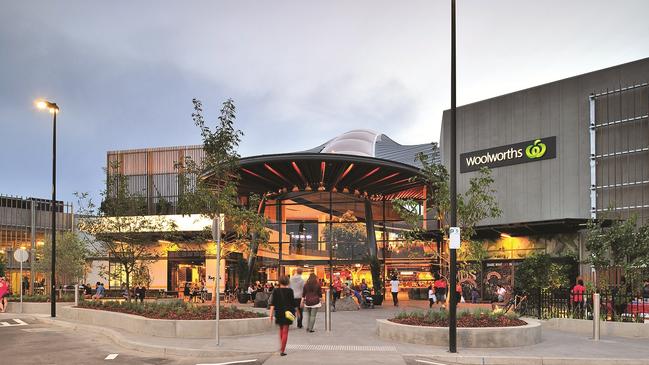Fears of slow coronavirus recovery hit shopping centre owners
Shopping centre owners were hammered on Friday as investors worry about their longer-term prospects.

Shopping centre owners were hammered on Friday as investors worry about their longer-term prospects, with the recovery from the coronavirus crisis expected to be sluggish as consumers are reluctant to spend.
Retail property values are also being marked down heavily as retailers push for more permanent rental cuts as they re-establish their businesses, while big chains are still baulking at paying rent during periods they are closed.
Large regional malls are at most risk as customers are staying away from crowds and instead focused on supermarket shopping or purchases of other necessities.
But store re-openings are getting under way and major landlords and retail organisations on Friday unveiled protocols to protect customer and staff health to prevent outbreaks of the coronavirus.
Fashion retailers are likely to open in order to start selling their winter stock, but foot traffic in parts of the country could be down, particularly as cinemas and gyms have shut down and food courts remain closed to dining.
Some parts of the country — notably South Australia, Western Australia and Queensland — could open faster and mall owners in these areas were optimistic, saying their foot traffic was strong, even during April.
But listed investors remain spooked. Diversified property owner GPT led the property sector down with a 9.9 per cent fall in its stock price to $3.81, with local Westfield owner Scentre down almost 9.9 per cent and Vicinity Centres, which part owns Chadstone, down by 8.1 per cent. Mirvac was also off 7.6 per cent, despite analysts seeing good signs in its quarterly update.
JPMorgan real estate analyst Richard Jones said both GPT and Mirvac had reported total sales and specialty sales growth turned materially negative in March, with both groups reporting declines of more than 25 per cent in specialty sales.
“April will be more impacted, with about 35 per cent of GPT and 55 per cent of Mirvac’s tenants currently trading, although the percentage open is again rising,” Mr Jones said.
“Lease negotiations are the major focus, creating a lot of administrative work and likely to drag on into the second half with varied outcomes expected.”
But landlords are putting some stock in the new protocol for COVID-19 to provide confidence that retailers and shopping centres will follow stringent health guidelines, as state governments consider the gradual easing of restrictions.
The Shopping Centre Council of Australia, National Retail Association, Shop Distributive and Allied Employees Association, Pharmacy Guild of Australia and Australian Retailers Association have jointly developed the rules.
SSCA chief Angus Nardi said strict public health guidelines would be followed and centres would provide a “safe, healthy and secure environment”.
Australian Retailers Association chief Paul Zahra said having the protocol provided the clarity and consistency for retailers.
Scentre chief executive Peter Allen said protocol measures were in place in the day-to-day operations of Westfield centres and noted Australian centres had remained open throughout the pandemic, providing supermarkets, food and grocery stores, pharmacies, medical centres and other retail stores.
“The economy is still charting the road back and our business and retail has a key role to play in this, but it will take time and will happen gradually,” Mr Allen said.
Some centres that sell large-format goods have remained open through the crisis. The Brett Blundy-led Aventus said its 20 centres were open and 87 per cent of shops were operating as they were focused on everyday needs.
The company said 30 retailers had reopened in the last two weeks and they expected the trend to continue.
But industry experts said the best chance for the very large centres was for them to make a more rapid shift towards becoming mixed-use assets.




To join the conversation, please log in. Don't have an account? Register
Join the conversation, you are commenting as Logout